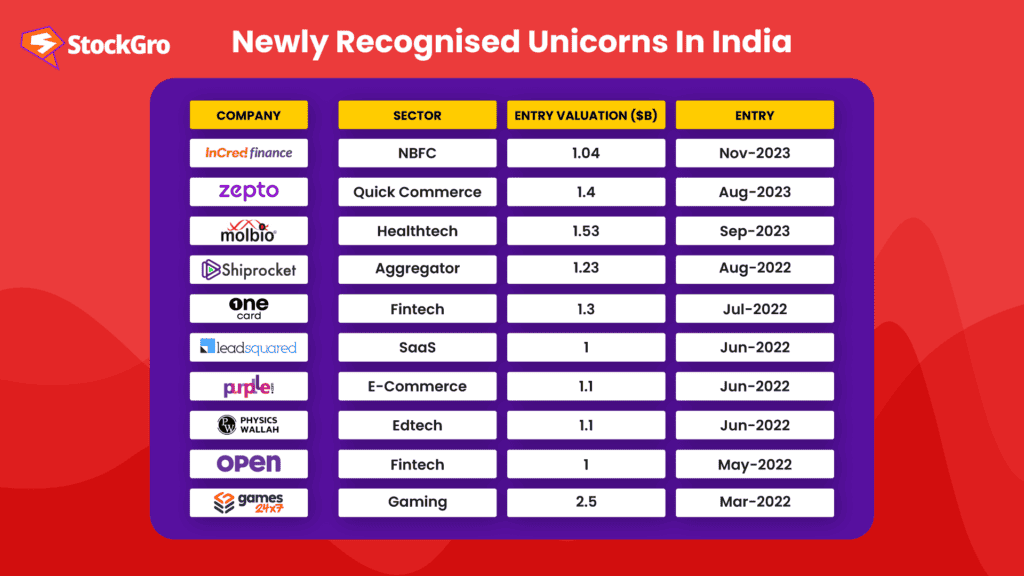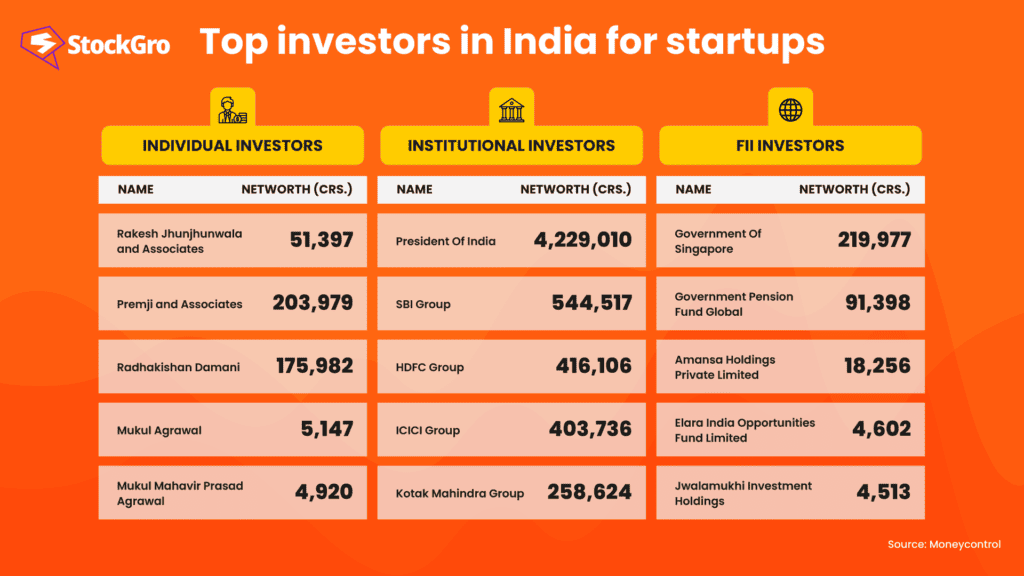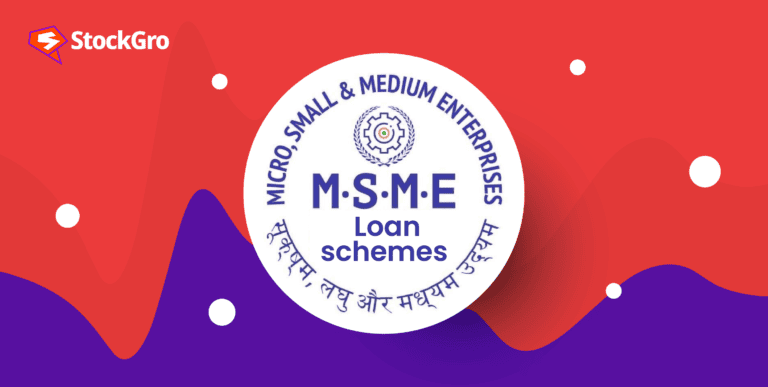
The Indian subcontinent is quickly becoming a startup hotspot, adding to the country’s already impressive reputation for cultural diversity and historical significance. When it comes to startup ecosystems, India is third globally. Startups in India are booming, with a 12%-15% YoY growth rate.
There is an abundance of opportunity, innovative thinking, and entrepreneurial spirit in the startup ecosystem in India, which is constantly evolving and thriving. It has become a haven for young, risk-taking entrepreneurs who want to shake up established markets.
The Indian startup ecosystem is complex, and this article intends to dissect it by looking at its history, current state, trends, problems, and potential solutions.
Quick facts and indicators of growth
There has been tremendous expansion in India’s startup ecosystem in recent years. As of February 2023, India’s Department for Promotion of Industry and Internal Trade (DPIIT) has officially recognised 92,683 startups. There were only 442 startups in 2016, so this is a huge jump.
The startup ecosystem in India is expanding at a rapid pace, producing more and more economic value. In India, startup funding amounted to a total of $11.3 billion. This signifies the investors’ conviction regarding the viability of startups based in India.
| Sector | Investor confidence in FY 2024 in % |
| Saas/Enterprisetech | 26% |
| Fintech | 26% |
| Healthtech | 14% |
| Ecommerce | 7% |
| Deeptech | 7% |
| Other | 21% |
Startups in India hail from industries of all kinds, as this table demonstrates. Many different industries fall under the umbrella of “other sectors,” including construction, textiles, agri-products, and many more. This variety reflects both the creativity and breadth of the Indian business community and the market’s potential.
Unicorns are startups that are privately held and have a valuation of more than $1 billion. Venture capitalist Aileen Lee came up with the term, drawing inspiration from the mythical beast to symbolise how rare such successful ventures are statistically.
Some of you may be wondering, how many unicorns are in India? There are 111 unicorns in India, with a combined valuation of $349.67 billion, as of October 3, 2023. In India, unicorns are considered industry-altering powerhouses with the ability to transform existing markets or establish entirely new ones.
Here is a list of a few newly recognised unicorns in India:

Also read: What exactly do angel investors do?
Key drivers of the startup ecosystem
Several critical elements shape the ecosystem in the ever-changing startup world. These key elements are propelling India’s startup ecosystem, so let’s examine them more closely.
Government initiatives: The Indian government’s “Startup India” initiative aims to create a dynamic environment that encourages innovation and entrepreneurship in all kinds of industries. It was launched on January 16, 2016. It has played a critical role in developing the startup scene in the country. Startups can take advantage of these programs’ streamlined compliance processes, tax breaks, and patent filing assistance.
Investment landscape: Startups in India have access to the funding they need to expand thanks to the country’s active investor community and platforms.
Innovation and technology: Startups have emerged in many different industries as a result of the innovation spirit and the fast development of technology. These companies have tackled specific problems and fulfilled consumer demands.
Talent pool: The abundance of skilled workers in India, particularly in the IT industry, has contributed greatly to the expansion of the startup scene in the country.

Also read: What exactly do angel investors do?
Major trends in the Indian startup ecosystem
Here are some of the major trends shaping the Indian startup ecosystem:
Concentration of startups: Despite targeted policy interventions, three main clusters—Delhi NCR, Bengaluru, and Mumbai—remain the focus of startup activity in India.
Job creation: When compared to their proportion of overall entrepreneurial activity, startups located outside of these clusters generate far more employment opportunities.
Diversity in founding teams: Women business owners are still grossly underrepresented on startup founding teams, and only a small number of ethnicities make up the founder pool overall.
Acquisitions: More Indian startups outside of the three main clusters end up as acquired companies, suggesting that acquisitions are a common way for these businesses to exit.
Resilience amid the pandemic: The Indian startup scene showed incredible fortitude despite the economic downturn brought on by the COVID-19 pandemic. The Indian startup sector saw the arrival of 45 new unicorns in 2021.
Increase in funding: From 2015 to 2022, the total funding of startups in India increased by a factor of fifteen, indicating exponential growth in the startup ecosystem. A total of 45 unicorns, valued at $102.30B, were born in 2021, and 22 more, valued at $29.20B, were born in 2022. Startups in India are getting a lot of funding, which bodes well for the country’s investment climate.
Let’s take a visual dive into the distribution of startups across various cities in India. This infographic illustrates the top 10 startup hotspots in the country, showcasing the vibrancy and diversity of the Indian startup ecosystem.
Moreover, one approach that has recently gained traction among Indian entrepreneurs is bootstrapping.
Bootstrapped startups launch and grow entirely on the founder’s savings and the proceeds from their first sales, rather than seeking outside investment. This method allows entrepreneurs to keep complete command of their company decisions and operations.
Some bootstrapped startups in India include FusionCharts, Zoho Corporation, 42Gears, Zerodha, Freshworks, GrabOn, HappyFox, QuackQuack, Thinkpot, Kayako, Wingify, and Tagalys.
Challenges and opportunities
Startups in India confront many challenges, such as a lack of capital, complicated regulatory procedures, fierce competition, difficulties acquiring talent, and inadequate infrastructure. They already have it bad without having to deal with scaling, mentoring, bureaucratic red tape, and market dynamics.
Despite these challenges, the startup industry in India is full of opportunities. Some of the most promising prospects for Indian entrepreneurs include the expanding consumer market, technological advancements, financial backing from the government, and the availability of skilled workers.
The incredible strength displayed by Indian startups in the face of the pandemic is proof of the ecosystem’s immense potential.
Bottomline
As we navigate through the dynamic landscape of the Indian startup ecosystem, it’s clear that the journey of a startup is filled with both challenges and opportunities.
Economic growth and technological advancement in India are propelled by the ecosystem’s resilience, inventiveness, and entrepreneurial spirit. For the foreseeable future, it seems like India’s startup ecosystem will continue to be a centre for innovation and entrepreneurship.
Further reading: The future of financial literacy: Trends and predictions

